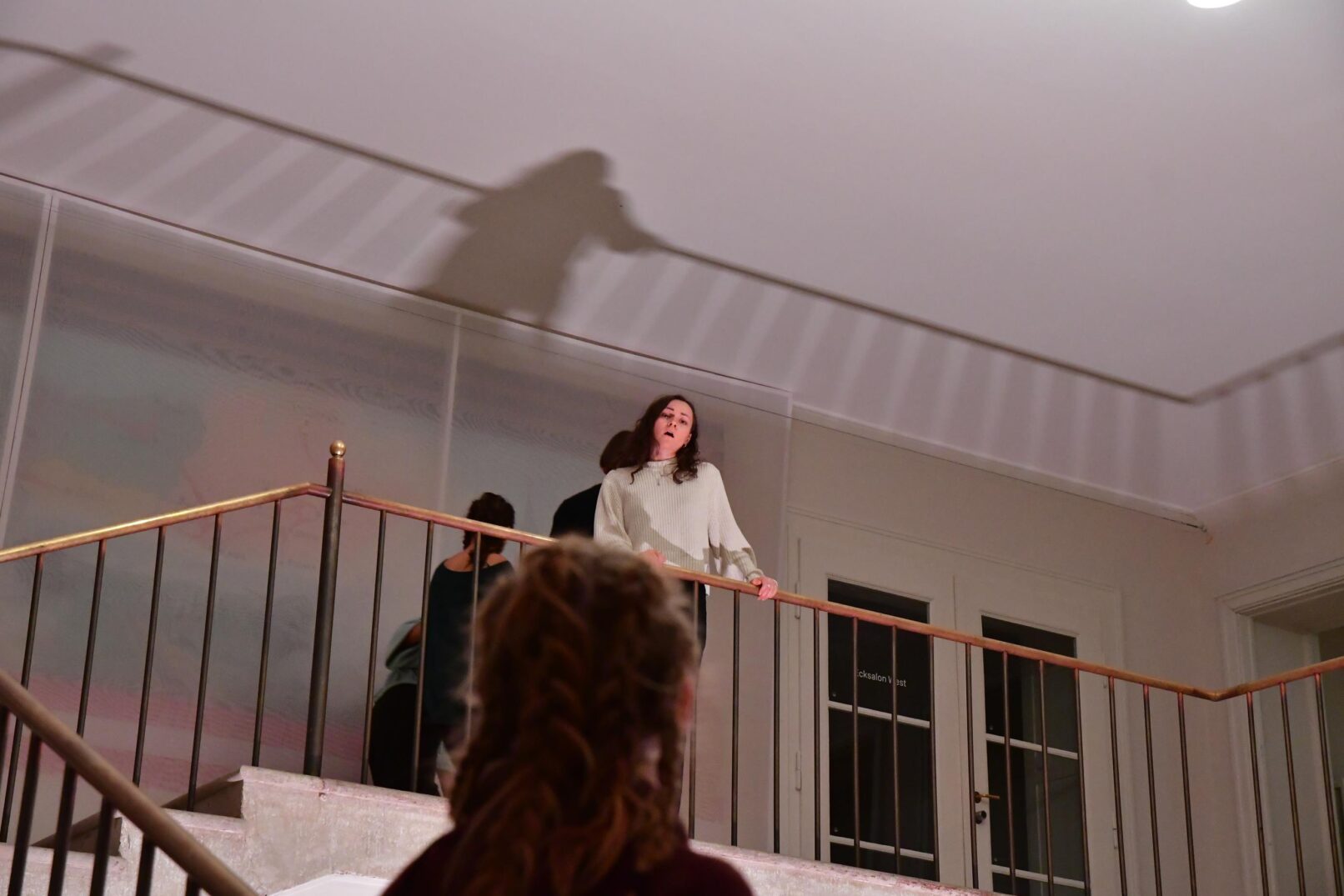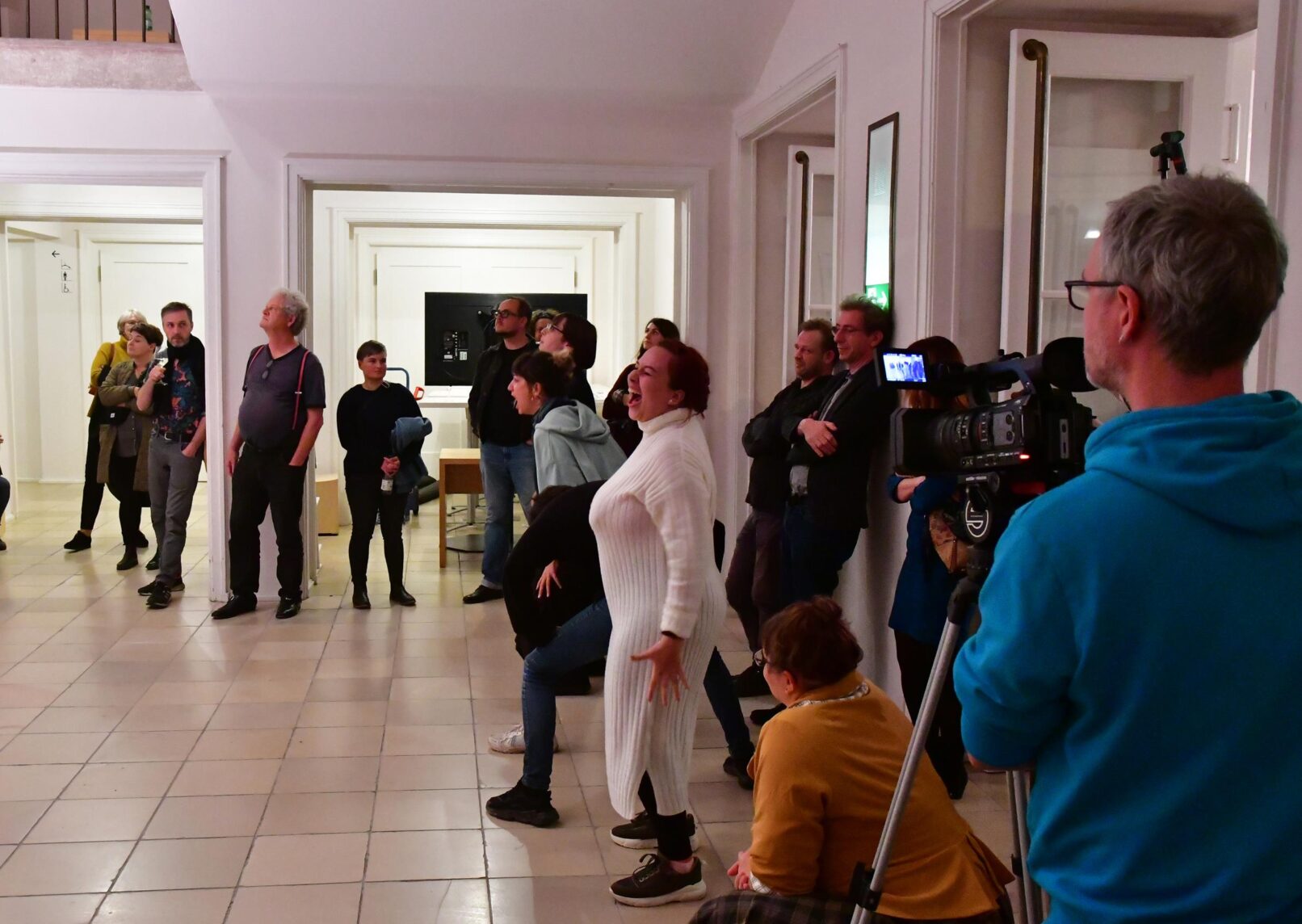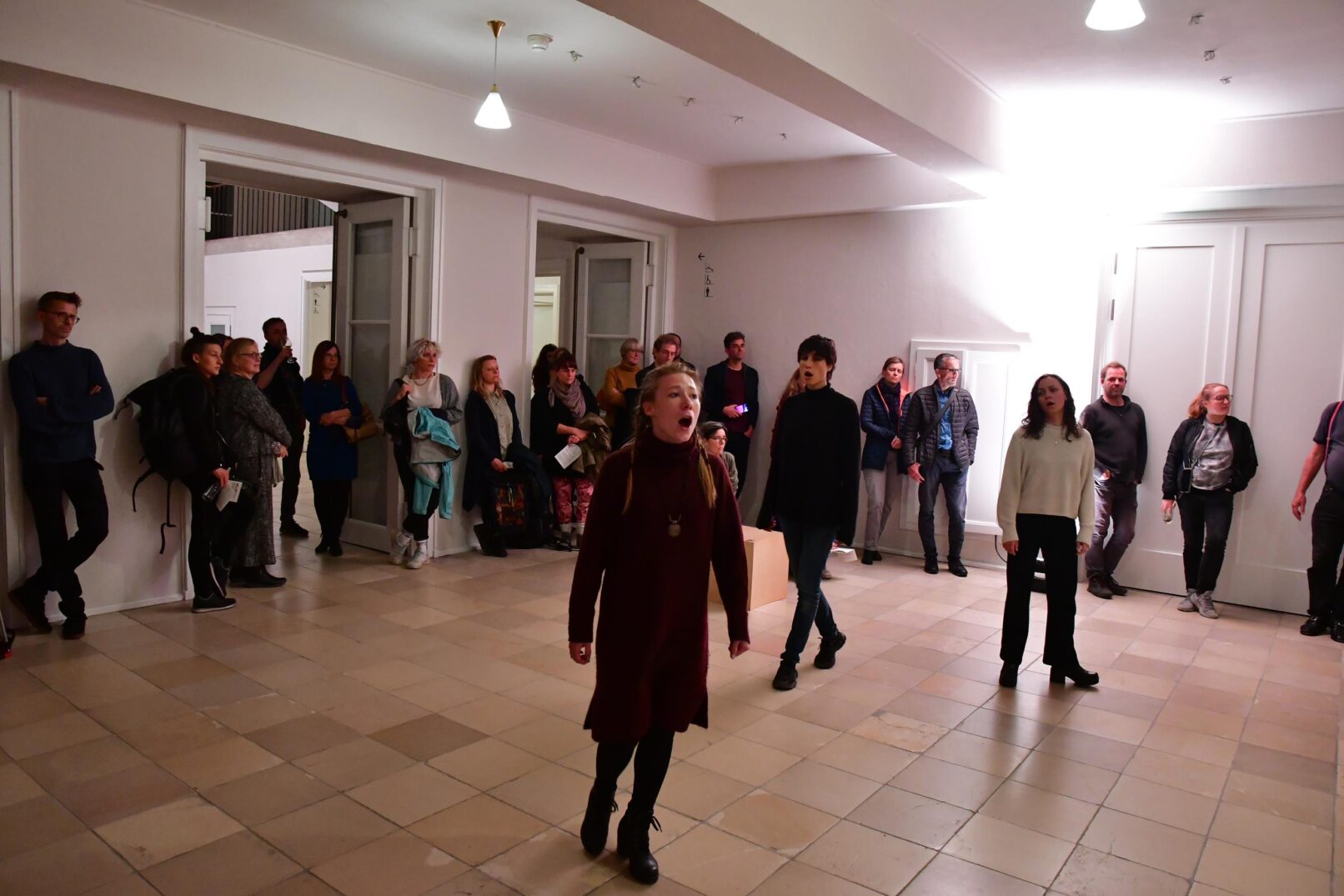EAST – WEST
Performance, 40 min 2022
Aufgeführt von / performed by: Капитолина Колобова, Анна Герасиме, Pauline Payen, Lyllie Rouvière, Mikołaj Szmeichel, Augusta Kling, Zorka Wollny
Film: Sebastian Rietz
Photos: Peter R Fiebig
In Auftrag gegeben und produziert durch / commissioned and produced by Kunsthaus Dresden – Städtische Galerie für Gegenwartskunst and HELLERAU – Europäisches Zentrum der Künste im Rahmen von / within the frame of Northeast-Southwest Festival
Performed in September 2022 in Hellerau Theater this performance was created together with participants from Ukraine, Poland, France and Austria, and played mercilessly with the stereotypes, dangerous and hurtful, coming back to public attention in the time of war in Eastern Europe.
In text layer the group quot fragments of the book „Inventing Eastern Europe” and the Wikipedia website describing „Western Culture” as „characterized by a host of artistic, philosophic, literary and legal themes and traditions” that „was, in recent history, and remains, the dominant power and director of human civilization”.
Performens was realised for the festival „Nordost Südwest” and used the fact that the wings of the building of Hellerau Theater are marked according to the directions of the world; East and West. The public, guided by the choir, was „traveling” from one side to another.
” The performers in Zorka Wollny’s collectively developed pieces never appear on a stage, but in transit zones of a more everyday nature, in the foyer, in the hallway and in the stairwells. For the piece „East-West”, performed at the Festspielhaus Hellerau in 2022 and developed in the context of the festival „Nordost Südwest”, the choreography and movement of the performers follow the natural logic of a wave or a wind. In this piece, acapella and unplugged, the voices of the performers become instruments through which the history of industrialization, wars and diaspora speaks, the pounding of machines, the whistle of a steam engine, the sound of a lullaby that no one sings anymore, and the blowing from east to west, from north to south. The voices of the performers, who transform themselves like the personifications of an ancient drama, but not through the mask, but through their voice alone, transform themselves into machines or sounds of nature, such as whizzing wind, and also rural sounds, such as the barking of dogs, the polyphony of a concert of different bird calls in the morning, or the chorus of a group of sheep.”
Christiane Mennicke



